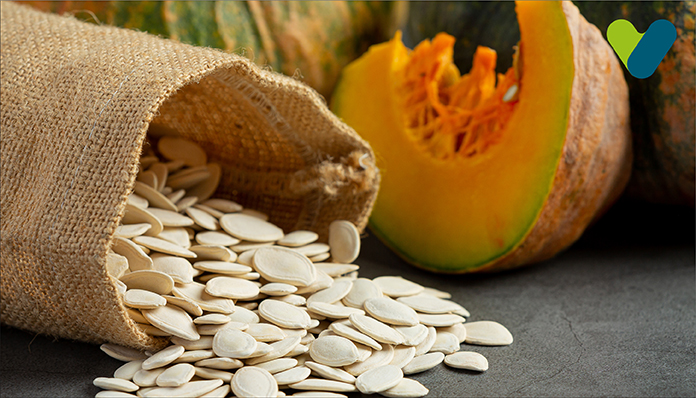Vitamins b12 and folic acid are known to work closely to help make the red blood cells in the body and help iron work properly in the body. Suhana felt extremely tired whenever she got up to do her daily life tasks. She felt like she didn't have any energy. When she went to get herself checked by a doctor, she found out that she had vitamin b12 and folate deficiency.
We know how vital the vitamin B complex is for our body. In this blog, we will focus on two out of the eight forms of vitamin b that are vitamin b12 and folic acid.
What are Vitamin B12 and Folic Acid?
The vitamin B complex consists of eight forms of vitamin B. vitamin B 12 is one of these eight forms, also called cobalamin. Vitamin B 12 is not produced in the body; therefore, we take it in supplements or from other animal or animal-based products like meat, fish, milk, cheese, etc. It is vital for neurological function, DNA production, and red blood cell development. Vitamin B 12 is also involved in helping the body use folate.Another essential form of vitamin B is vitamin B 9, also called folate. Folate is the naturally occurring vitamin B 9, whereas folic acid is a synthetic form of vitamin B 9. The essential functions of vitamin B 9 or folate are similar to that of vitamin B 12. Some of the good sources of folate are green leafy vegetables, broccoli, peas, etc. On the other hand, folic acid is taken through supplements or breakfast cereal.
The deficiency of vitamin b12 and folate can lead to vitamin B12 deficiency anaemia and folate deficiency anaemia.
Uses of Vitamin B 12 and Folic Acid
These two forms of vitamin B3, the folic acid vitamin b12, are often termed together and are used interchangeably as they are interconnected. Vitamin b12 and folate work closely to produce red blood cells, and in pregnant women, it is crucial as it helps the baby grow and develop. Folate works with vitamin B 6 and B 12 and other nutrients to control blood levels of the amino acid. On the other hand, vitamin b12 and folic acid work closely to help make red blood cells and help iron work properly in the body.Following are essential uses and benefits of vitamin b12 and folic acid
Vitamin B 12-
- It helps with the formation and development of the red blood cells, which is vital in carrying oxygen throughout the body. Both folic acid vitamin b12 share this use as both are essential in this process.
- It is also vital in preventing anaemia, which is caused due to significantly fewer levels of blood and iron in the body.
- Another use or benefit shared by both vitamin b12 and folic acid is that studies have found that they may be able to prevent birth defects.
- Maintaining the proper levels of vitamin b 12 in the body may support bone health and prevent osteoporosis.
- Macular degeneration is an eye disease that mainly affects your central vision. Sometimes this can grow with age. A healthy intake of vitamin b 12 can help prevent the risk of age-related macular degeneration.
- Another factor is that it is a shared-use or benefit of both vitamin b12 and folic acid; they are seen to improve mood and also cure symptoms of depression. It happens when vitamin b12 synthesizes and metabolizes serotonin, a chemical responsible for regulating mood. Another study showed that antidepressants and vitamin b12 worked better on the symptoms than antidepressants alone.
- Vitamin b12 and folic acid both are known primarily for playing their parts in the healthy and proper functioning of the brain. Vitamin b12 deficiency is associated with memory loss. They benefit the brain by preventing the loss of neurons.
- As we know, all the B vitamins help the body to convert food into energy. Therefore, proper intake of folic acid vitamin b12 supplements can give you an energy boost. Also, it is noticed that vitamin b12 and folate deficiency have signs of fatigue and weakness, which clears the direct relationship between the two.
- Vitamin b 12 may improve heart health by decreasing homocysteine.
Folic Acid-
- Folic acid and folate supplements are predominantly given to pregnant women as they are known to prevent birth defects and some other pregnancy complications.
- Folate deficiency occurs due to inadequate dietary intake. It can also occur post-surgery, during pregnancy, in alcoholics, etc. Using folic acid and folate supplements can treat folate deficiency.
- The risk of dementia is more in people with low blood folate levels. Folic acid and folate directly promote brain health. Low levels of folate mean poor functioning of the brain.
- We have discussed above that low levels of b12 and folate are seen in people with depression. When folic acid and folate supplements are given with antidepressants, they reduce the symptoms of depression.
- Supplementing with folate-based supplements, including folic acid, may help improve heart health and reduce your risk of heart disease risk factors.


